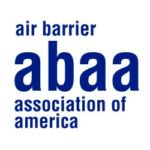
- This event has passed.
Critical Choices: Managing Air/Vapor in Low-Slope Roof Systems
November 7, 2024 @ 1:00 PM - 2:00 PM EST
We will explore the evolution of technology in low-slope roofing systems and its significance for buildings. Past low-slope roofing typically ignored air tightness, focusing on vapor restriction. This presentation will describe the importance of air tightness and vapor restriction to protect the building, your assets, and its occupants.
Gain comprehensive insights into the anatomy of low-slope roofing assemblies and common low-slope roofing systems in the modern world or construction. We will provide the knowledge to make informed decisions about the usage of air/vapor retarders versus vapor barriers in low-slope roofing applications, enhancing your proficiency in creating resilient and sustainable building envelopes.
Learning Objectives:
- Describe the technology changes of low-slope roofing systems over time and their importance to buildings.
- Understand the anatomy of low-slope roofing assemblies and the common roof systems used in current construction practices.
- Gain clarity on how building science fundamentals, specifically heat, air, and moisture Management, influence both energy efficiency in building performance and compliance with regulatory requirements.
- Understand how to mitigate common issues from moisture and air movement that impact occupants’ health and safety.
 Scott Wood, CBST, Level III Thermographer
Scott Wood, CBST, Level III Thermographer
Mr. Scott Wood has decades of experience in building science and infrared thermography as an instructor and consultant. As the Senior Building Scientist for VaproShield he operates the FrogLab, testing and evaluating AB/WRB systems and associated accessories. He provides technical support for the company’s representatives, client inquiries, and assists in development – updating product literature and creating VaproShield’s AIA presentations. His expertise has provided numerous papers and presentations in both the building and thermography sciences.
His credentials and memberships span a large array of specialties including B.S. in Microbiology with an emphasis in biochemistry and molecular biology, trained in WUFI, fire/mold-water/asbestos/odor remediation, Level III Thermographer, memberships in ASTM C06 & C16 committees, BEC, IACT, AUPTA, ABAA.
